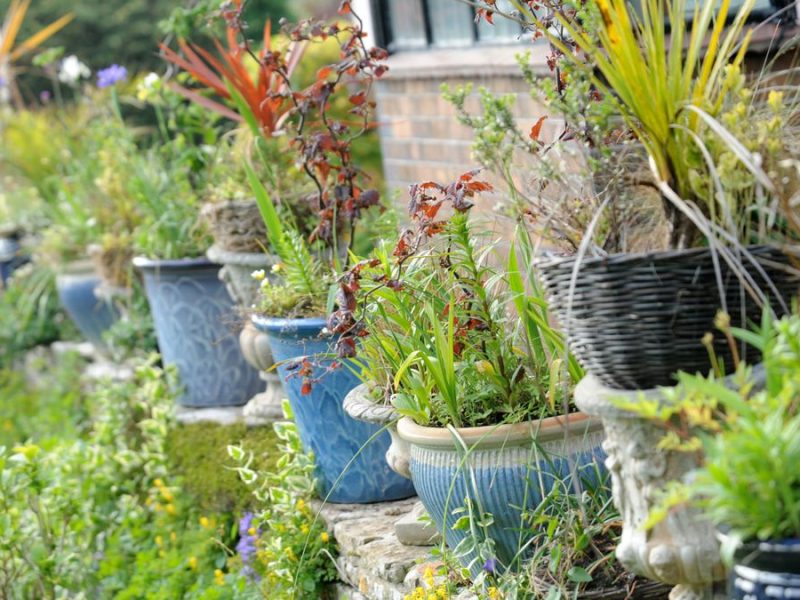
The Eco-Friendly Benefits Of Choosing Plant Containers For Your Garden
Growing flowers has always been a well-liked hobby since it allows us to unwind, commune with nature, and enhance our surroundings. However, with increasing concerns about the environment, gardeners are looking for ways to make their green spaces more sustainable. One effective and often overlooked method is the use of a plant container. Not only do these containers offer flexibility and convenience, but they also provide several eco-friendly benefits that can make your garden greener in more ways than one.
-
Water Conservation
One of the primary eco-friendly benefits of using plant containers is their ability to conserve water. In traditional in-ground gardening, water can easily seep into the ground and evaporate, especially during hot weather, leading to significant water wastage. However, when plants are grown in containers, water is more easily controlled and directed exactly where it’s needed.
Containers can be equipped with self-watering systems that allow plants to absorb moisture from a reservoir as needed, reducing the amount of water required. Additionally, because containers can be moved, they can be placed in shaded areas to reduce evaporation, further conserving water. This makes container gardening an excellent option for those looking to reduce their water usage and promote sustainability.
-
Soil Health And Reduced Chemical Use
Another significant benefit of plant containers is the ability to control soil quality. In traditional gardening, soil can become depleted of nutrients over time, leading to the need for chemical fertilizers, which can harm the environment. Plant containers, however, allow gardeners to start with high-quality, nutrient-rich soil that can be easily maintained and replenished as needed.
Moreover, because container gardens are more contained, they are less prone to pests and diseases that often require chemical interventions. This lessens the need for pesticides and herbicides, which may be detrimental to the surrounding fauna and the environment. By choosing organic soil and natural pest control methods, gardeners can create a more sustainable and eco-friendly gardening practice.
-
Waste Reduction And Recycling
Plant containers also offer opportunities for waste reduction and recycling, contributing to a more sustainable gardening approach. Recycled materials, such as metal cans, wooden crates, and old tyres, can be used to make a variety of containers, giving new life to objects that would otherwise end up in landfills. By repurposing materials into plant containers, gardeners can reduce waste and promote recycling in their gardening practices.
To make nutrient-rich soil for their plants, gardeners can also readily compost organic waste in containers, including vegetable scraps and plant clippings. This not only reduces waste but also provides a sustainable source of nutrients for the garden, eliminating the need for synthetic fertilizers.
-
Space Efficiency And Urban Gardening
For those living in urban areas or with limited outdoor space, plant containers offer an eco-friendly solution to maximize green space. Plants can be grown in places where traditional gardening would not be feasible, such as balconies, rooftops, or even indoor spaces, thanks to containers. This helps lessen the urban heat island effect and enhance air quality in addition to adding more greenery to urban areas.
In addition, by using plant containers, gardeners can grow their own food, reducing the need for store-bought produce that often comes with a high carbon footprint due to transportation and packaging. Growing food in containers can also result in better eating practices and a deeper appreciation for sustainably produced, locally sourced food.
-
Mobility And Flexibility
Plant containers offer a level of mobility and flexibility that traditional gardening cannot match. This mobility allows gardeners to move plants to optimal locations based on sunlight, temperature, and seasonal changes. Gardeners may lengthen the growing season and lower their reliance on energy-intensive techniques like artificial lighting and heating by relocating plants to more suitable locations.
Furthermore, plants are shielded from inclement weather and require fewer resources to maintain when they can be moved indoors during the colder months. This adaptability lessens the environmental effect of gardening while simultaneously promoting the health of the plants.
-
Supporting Biodiversity
Using plant containers can also help support biodiversity by allowing gardeners to cultivate a variety of plants that may not be suitable for the local soil or climate. By growing a diverse range of plants, including native species, gardeners can create habitats for local wildlife, such as pollinators, birds, and beneficial insects.
By constructing microhabitats with containers, one can support a more robust and diverse ecosystem by meeting the unique requirements of many species. This, in turn, contributes to the overall health of the environment and supports the conservation of local flora and fauna.
Conclusion
Plant containers are a great option for sustainable gardening because they have several eco-friendly advantages. From water conservation and soil health to waste reduction and support for biodiversity, containers provide a versatile and environmentally conscious way to cultivate plants. Plant containers can assist you in creating a more environmentally friendly and sustainable garden that benefits both you and the environment, whether you’re an urban gardener with limited area or someone trying to lessen their environmental footprint.




